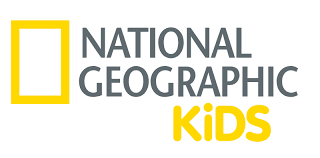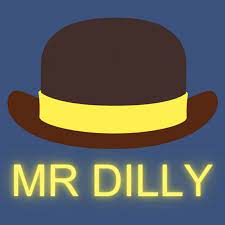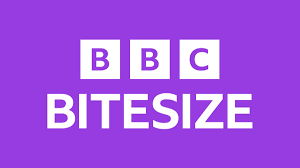History
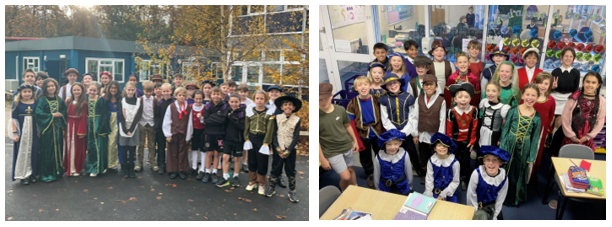
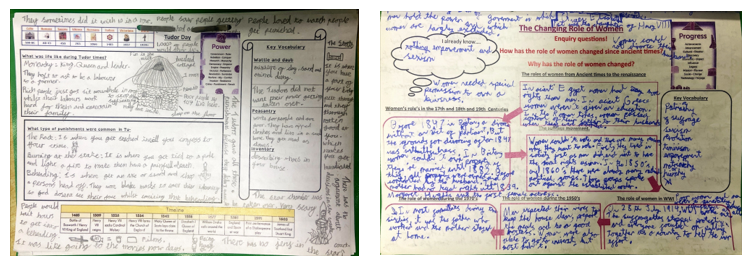
Rationale
At Ravenscote we aim to stimulate children’s interests and understanding about the lives of people who lived in the past and the ways in which their lives differ from the present. We believe that learning about the past helps children make sense of the world in which they live, and develops their analytical thinking. The study of history makes a valuable contribution to our children’s understanding of all aspects of life, giving them a sense of identity and heritage.
As a school we have defined learning as: children will ‘Know more, do more and remember more’. This means, that our curriculum map involves repetitive teaching of the key concepts of history. Each unit has built in practise, retrieval and reinforcement of the key concepts to ensure knowledge sticks in the long-term memory.
At Ravenscote, we have taken the decision not to teach the historical periods in chronological order. When organising the curriculum, we considered the content of the historical events and decided that some were better suited to certain age groups with regards to emotional, academic and developmental abilities. In addition, by teaching time periods out of order, children are able to make links to different eras and discover how different periods relate to each other, whilst developing a coherent understanding of the past. For example, when learning about the ‘Stone age through to Iron age’ in year 4, children can compare with life in Ancient Egypt during the same time period as discovered in year 3.
Each year group will complete at least one history unit based on a different civilisation. Wherever possible, comparisons will be made to previous learning of civilisations and consideration given to what was happening in Britain or around the world at the same time. All teaching will have a strong focus on chronologyon chronology to enable children to make links between periods.
It has been decided that local history should be shared across the year groups to ensure teaching is relevant and relatable. Local history is explicitly taught in Year 3 (The History of Camberley), Year 4 (Samuel Cody), Year 5 (Changes in the local areas since 1960’s and a Highwayman unit) and Year 6 (How WII impacted lives of local people).
Rationale Yr. 3 Studies:
Children study Ancient Egypt as it was one of the longest-lasting civilisations in world history. Year 3 pupils study the period in depth over two terms, to introduce them to civilisations and ks2 timelines. Children will develop skills such as critical thinking, questioning and investigation throughout this topic and apply knowledge retained from infant schools to make comparison between life in the Egyptian times and life now. Children are introduced to the vocabulary: peasantry, noble, sphinx and civilisation. This is the first opportunity for children to investigate artefacts and question their reliability. In addition to learning about Ancient Egypt, we have introduced an overview lesson to enable children to familiarise themselves with a variety of ancient civilisations, in line with the National Curriculum requirements. In addition, in year 3, children look at a more recent civilisation with strong links to Britain in contrast to the Egyptian teaching. They discover how the legacy left by the Anglo Saxons still impacts life in Britain today. Children revisit artefacts and compare the similarities and differences between life then and now.
Rationale Yr. 4 Studies:
Children study the changes through the Stone Age up until the end of the Bronze age. This gives children a broad understanding of pre-history which can be compared to previous learning of Ancient Egyptians. Children consider why changes in History occurred and this creates an excitement, awe and wonder about life so long ago and the role of archaeologists. Children will learn to sequence several events and artefacts to build on their understanding of terms such as BC and AD. This will develop in year 5 as they start to compare periods in time.
Children study several History Heroes that include local hero Samuel Cody. This unit allows pupils to explore how individuals (not only civilisations) can impact the past and present .present.
In addition, pupils discover the arguments for and against the Union of Great Britain through the study of The Roman Empire and gain a clear understanding of the British Empire and the changes over time. Children will order the key events that occurred in the Roman times and use dates to place events on a timeline. They will explore many aspects of Roman life including how roads and buildings were built and constructed, and how elements of Roman life are still used today.
Rationale Yr. 5 Studies:
The Maya unit was selected for year 5, as it provides an excellent contrast to the prehistoric era, studied in year 4. It also complements the teaching of MFL (Spanish teaching) and links to the North and South America learning in Geography. Children considerChildren consider how the Maya lived in comparison to our lives and research the Maya writing and number system whilst compare this to other civilisations (e.g. Roman and Ancient Egypt). This unit also explores the achievements of the Maya civilisation and reasons for its decline.
Tudor England is a study of an aspect of British history that extends pupils’ chronological knowledge beyond 1066. This exciting unit enables children to use historical sources to describe influential characters as well as consider the impact the English Reformation has on life today. They will study key Tudor monarchs and the influence and effect that they had on society then and now.
London through the ages, gives children an opportunity to discover the impact that major local events have had on London. Children revisit London as discovered by the Romans andRomans and identify how London has changed over the past 500 years and the impact of major events such as Theas The Great Plague and The Great fire of London. Through this topic, they will continue to develop and use historical vocabulary e.g. society, economics, cutrual and hierarchy linking to historical terms and periods through discussions and explanations. This exciting unit includes a local study on how life has changed since the 1960’s in Camberley and the Highwayman of Camberley (linked to English).
Rationale Yr. 6 Studies:
As a major turning point in History for Britain, Children consider the key events that led to WWII and countries which were involved. Children immerse themselves in the life as a child living in the local area during this time by considering rationing, the Blitz and evacuation. Children will be able to use their skills to recognise valuable primary and secondary sources, which will help them build on understanding of what life was like during the war. They will be able to build on historical skills such as questioning, critical thinkingcritical thinking and reasoning.
Whilst studying the period of Ancient Greece pupils will compare their new knowledge to all previous learning of civilisations around the world. Children will build upon their knowledge of the past and place specific periods of history on a timeline to give a better understanding of the different periods in history. Children will explore their achievements and how the modern world owes a lot to the Ancient Greeks as they are to thank for many ideas and inventions such as democracy, theatres and architecture. Some children will be able to make further links to compare this time to others, such as the Maya.
Year 6 pupils use all skills obtained during KS2 to create an argument based on research and sources. Children will explore the Vikings and Anglo-Saxons struggle for the Kingdom of England to the time of Edward the Confessor. Children will identify who the Vikings were and how they invaded Britain. They will explore place names in the UK today and explain their Viking roots. In this unit, children will continue to explore the theme of invasion and settlements by revisiting their learning of Romans, and Anglo Saxons.
Intent
The intent for history is to develop children’s understanding of the world’s past, and how it has developed into the world we live in today. It will engage our pupils in questions about Britain’s past and that of the wider-world. Pupils will continue to develop chronologically secure knowledge of British, local and world history, establishing clear narratives within and across the periods studied. They will note connections, contrasts and trends over time and develop the appropriate use of historical terms.
They will understand how knowledge of the past is constructed from a range of sources and be able to judge their reliability. The subject provides a historical context that helps pupils to understand the present, appreciate the challenges of our time, and prepare them for the future. Our curriculum content is rich in knowledge, vocabulary and experiences, allowing children to develop their understanding of abstract historical concepts as they move throughout their schooling.
Our history curriculum promotes curiosity and a love for learning about the past. Through an enquiry-based approach, children are encouraged to ask and explore historically valid questions and report their findings by drawing on skills from across the curriculum. Alongside the development of substantive knowledge, children will develop their disciplinary skills as they learn the fundamental elements of what it is to be a historian. We teach children to investigate past events and, by so doing, to develop the skills of enquiry, analysis, interpretation and problem solving.
Our pupils will learn about the actions and motives of key people, nations and civilisations - their achievements and mistakes, and the impact of each, over time. will acquire knowledge of different cultures, beliefs and values and how they were shaped. We want our pupils to develop an understanding of themselves and others by reflecting upon their similarities, differences. We encourage them to consider diversity and how we live in an interdependent global world.
Our intention for historical enquiry within Ravenscote is to: to teach and equip children to:
- Ask perceptive questions about the past
- Think critically
- Weigh evidence
- Sift arguments
- Develop perspective and judgement
- Compare and contrast different historical periods.
- Develop their knowledge of historical vocabulary
- Apply their historical knowledge and vocabulary to create their own structured accounts
- Have a clear knowledge of the chronology of key events and significant people.
At Ravenscote, our units are linked to our three ‘Threads’ of ‘Power’, ‘Progress’ and ‘People’. Throughout children’s learning journey, these concepts will be revisited and key vocabulary revised to create links between units and time periods to ensure knowledge is imbedded and understood.
Implementation
As a subject, humanities isis taught once a week, with an allocated time of one hour. History is taught for three half terms per an academic year. Children assess their work though ‘quick quizzes’ and the skills being developed and used during the lesson are shared with the skill code written in the margin of the children’s books. At the end of each lesson, children reflect on their learning and RAG rate their understanding on their skills maps. Red highlights little or limited understanding or confidence in using the skill, yellow demonstrates a child has some understanding and green demonstrates that they are competent in the skill and learning for the lesson.
Teachers use a range of resources and techniques to expose children to historical methods of discovery. This is achieved by children complete a wide range of tasks, and linking to their learning to previous lessons and knowledge. The final lesson of a unit will recap all of the units learning and children will be offered an opportunity to demonstrate their learning using an assessment task. During the final lesson, alesson, a teacher reflection sheet will be completed and used to assess pupils and identify any misconceptions. At the end of every term, teachers will grade every chid as either ‘working towards’, ‘expected’ or ‘greater depth’ in Humanities. This information will be communicated with the subject leader using the specified spreadsheet.
Skills identified on the year groups ‘skills maps’ develop sequentially throughout children’s four years at Ravenscote. The skills develop the history overarching skills of: vocabulary, organisation and communication, chronological understanding, historical knowledge, Interpretations of history and historical enquiry. As pupils’ practise and develop these skills, the skills will progressively increase in difficulty to create well-rounded, curious historians. We ensure that children have a chronological understanding by ensuring all units; begin with the chronology of the time period being studied, and reference ‘Ravenscote’s History curriculum timeline’. Each teacher explicitly makes links with different time periods to ensure children make connections with learning.
To ensure progression, the National Curriculum is used as a basis for what pupils are taught, and teachers use historical vocabulary throughout teaching. Knowledge is regularly revisited and pupils demonstrate their learning by creating their own Knowledge organiser. Children explore a range of evidence sources, to build knowledge and understanding.
Enquiry skills are used to investigate events of the past: this enables children to retain knowledge for longer and be able to apply it rather than it being retained in their short-term memory. All knowledge, vocabulary and skills used throughout a unit, build to answer the enquiry question (s) for the topic.
To motivate pupil’s’, ‘Humanities Heroes’ are selected each term to celebrate enthusiasm for the subject and also share examples of work with the whole school community.
Our aim is to use a cross curricular approach, when appropriate, to allow children the opportunity to apply skills, but not distract from the history content pupils are required to learn.
We endeavour to produce historians who have the following characteristics:
- Excellent knowledge and understanding of people, events and contexts, from a range of historical periods and of historical concepts and processes.
- Have the ability to think, reflect, debate, discuss and evaluate the past, formulating and refining questions, and lines of enquiry.
- Critical thinkers who can communicate ideas confidently in a variety of styles, appropriate to a range of audiences.
The characteristic that Ravenscote aims to promote throughout the history curriculum:
|
Read Write Think |
||
|
When historians read they: |
When historians write, they: |
When historians think, they: |
|
|
|
Impact
Through the high-quality, first teaching of history, we will see the impact of the subject through:
- Pupils voice and their ability to talk about the skills and knowledge that they have acquired.
- Children will engage and be motivated to find out more about the subject.
- Written work will show; ashow; a range of topics are being covered, cross curricular links are made where possible, adapted work is set where appropriate, skills and knowledge learnt will be evident.
By the end of each unit of work, children will know more historical information, will have improved their enquiry skills to enable them to do more with the information learnt whilst making links to previous knowledge ensuring they remember more.
Learning about different periods in history will improve children’s chronological knowledge of events, as well as allowing them to make links between different periods and comparisons with the modern day. Children will become increasingly aware of how historical events have shaped the world they currently live in, with empathise placed on analytical thinking and questioning. This will help pupils gain a coherent knowledge and understanding of Britain’s past and that of the wider world, making them curious to know more about the past.
Children will begin to develop their understanding of historical enquiry and evaluate their own learning. Pupils will learn to ask perceptive questions, think critically, weigh evidence, sift arguments and develop perspective from judgment. Yearly themed days provide further relevant and contextual learning, bringing the subject to life. As historians, children will learn from history to influence the decisions that they make in their lives in the future.
The impact and measure of our history teaching will ensure that children are equipped with historical enquiry skills, knowledge and concepts, in addition to guiding their attitude to historical events, which will enable them to be reflective learners, ready for the KS3 curriculum. Through doing this, we aim to generate an excitement for historical enquiry, to encourage the children to become life-long learners in the wider world. We hope that the passion that emanates from our creative, enthusiastic teachers, will highlight and ignite within the children an importance for studying events from the past. It is our belief that bringing these experiences to our pupils’ present will positively shape their futures.What have pupils learnt and what do they know? Do children know more, do more and remember more? Your National College training should help with this section.
Please click here to access our History Policy document.
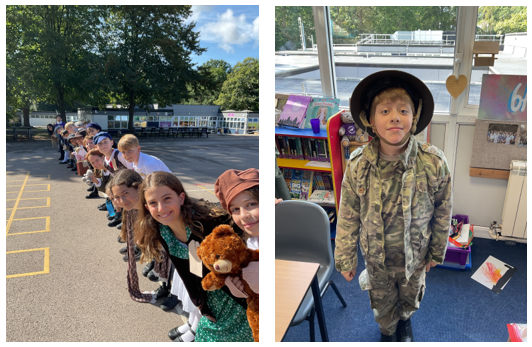
Year 5/6
“We can learn what happened in the past and how it has impacted our future”
“Curriculum days are interesting; we can put ourselves into the shoes of those in the past and really understand what they went through”
“History is so interesting, I love learning new things every lesson and my teacher makes learning enjoyable”
Year3/4“We can’t go in a time machine to see what happened hundreds of years ago, so learning about it at school is so fun!”
“I love being able to dress up and learn lots of new things”
Links for parents:



